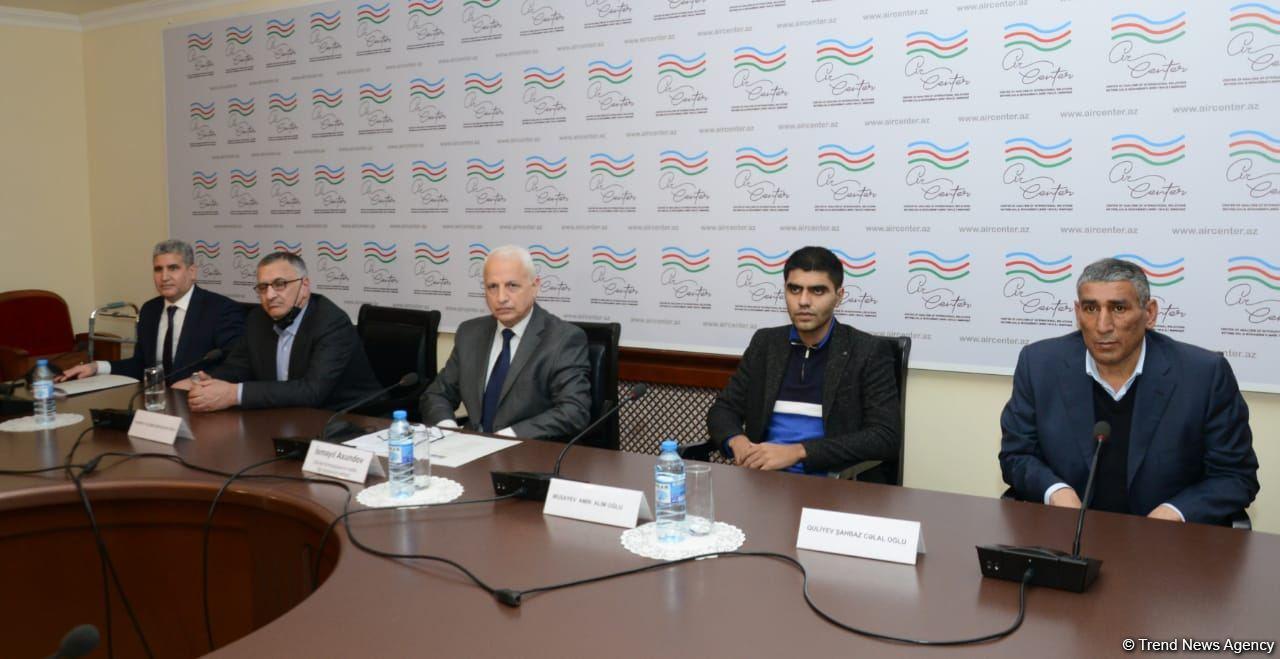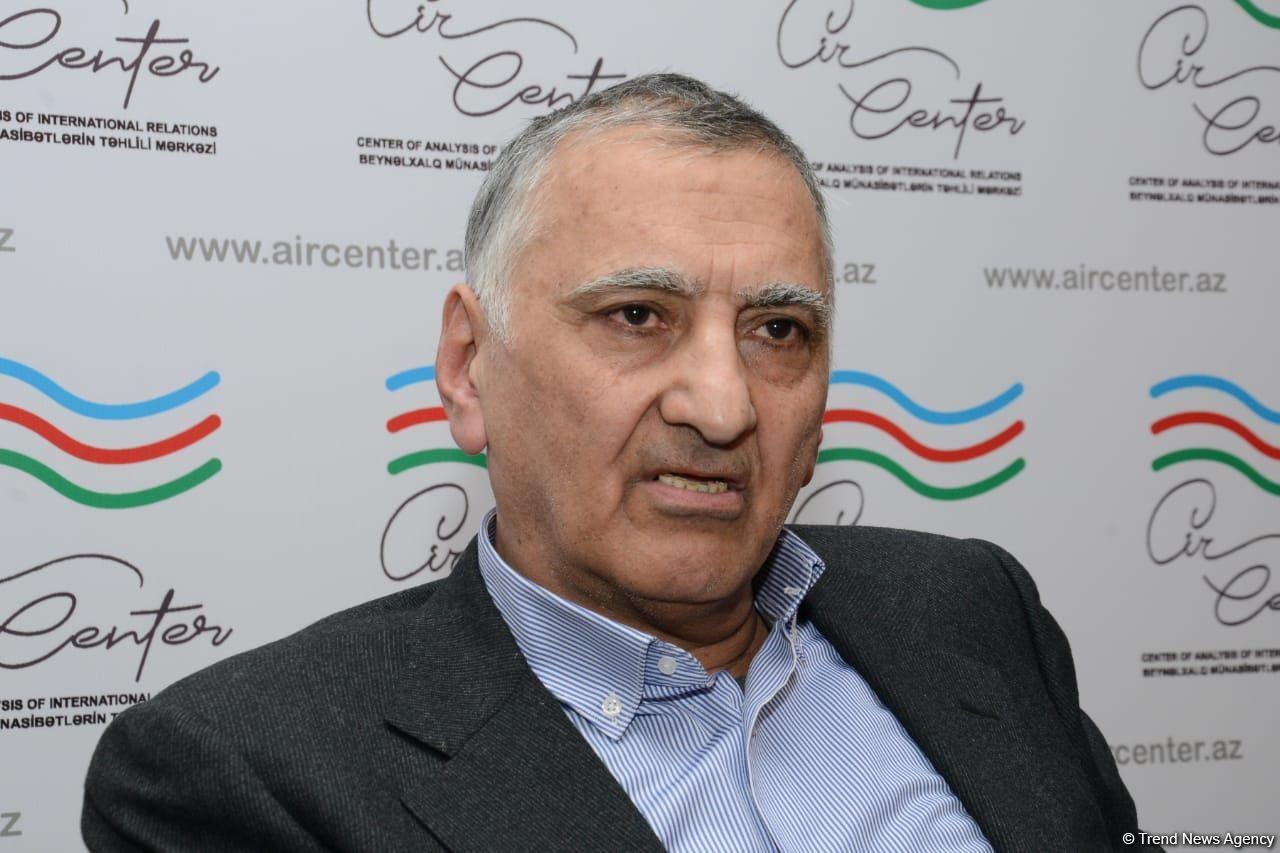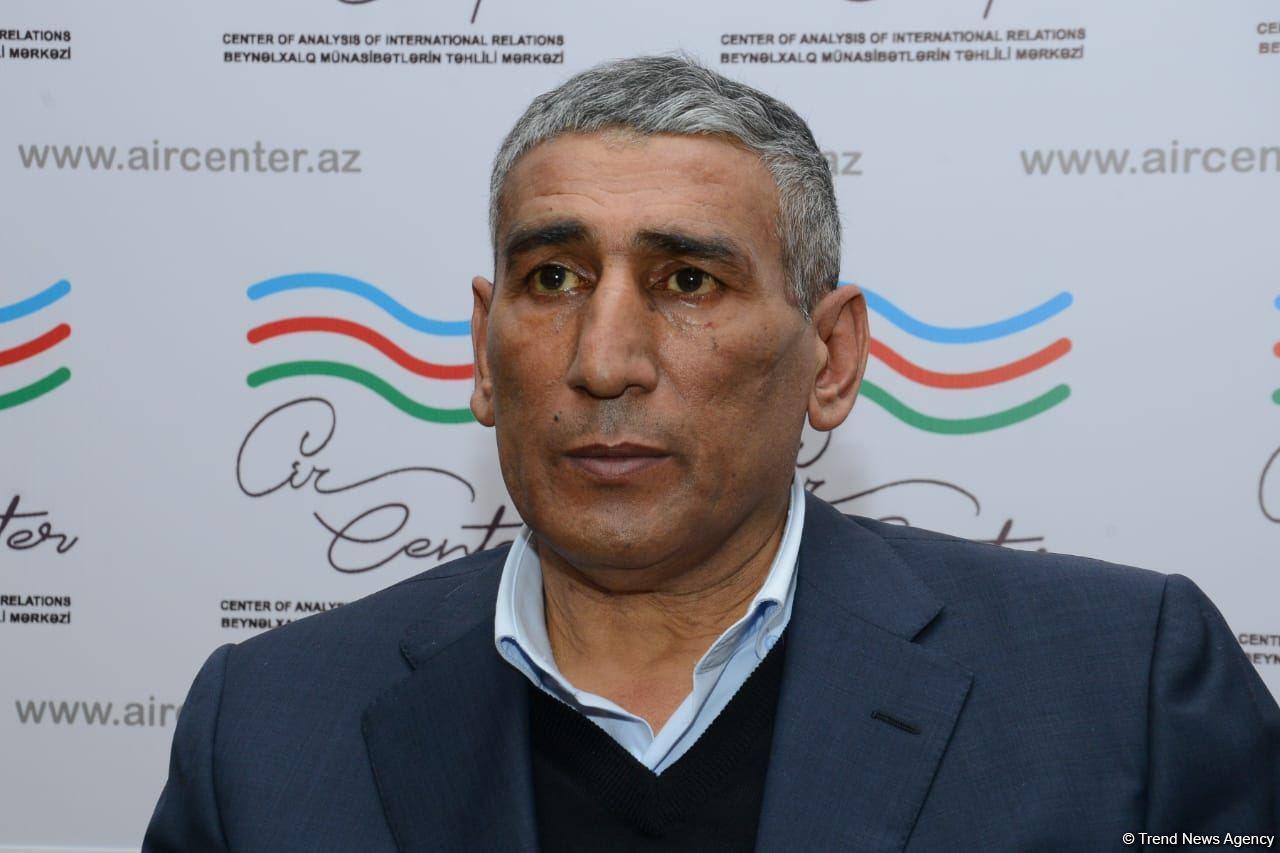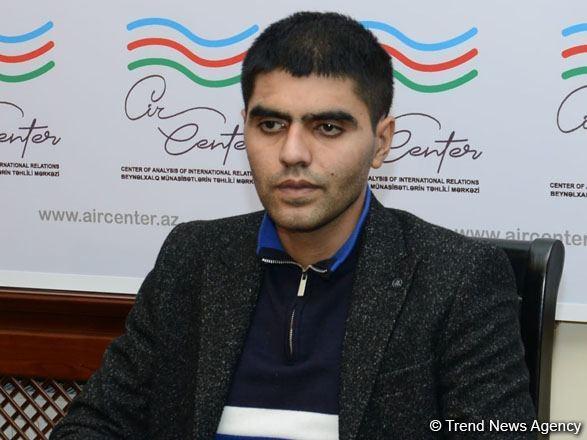Former Azerbaijani hostages recount torture in Armenian captivity

By Vafa Ismayilova
Azerbaijanis released from the Armenian captivity in December 2020, as part of the November 10 trilateral peace deal, have spoken about brutal tortures they were subjected to during the captivity, local news sources have reported.
At a news conference held in Baku on January 7 by the Azerbaijani State Commission on Prisoners of War, Hostages and Missing Persons, former captives Dilgam Asgarov, Shahbaz Quliyev and Amin Musayev unveiled details about inhumane treatment they had faced in captivity. The head of a working group at the State Commission, Ismayil Akhundov, also attended the meeting.
Six years of tortures in captivity
Dilgam Asgarov and Shahbaz Guliyev who were illegally detained by Armenian forces in July 2014 while visiting their relatives’ graves in Azerbaijan’s then-occupied Kalbajar region, talked about the trauma of torture that lasted six years.
“I remained in Shusha’s prison for six years and five months. I was not allowed to go for a walk. I was twice electrocuted in Khankandi. They aimed to urge me to speak against the Azerbaijani nation and government. I did not allow it as much as I could. Journalists from abroad even came there. They were also in prison that day. I was forced to give an interview to those journalists. I did not do so and demanded that I could do so only in Kalbajar,” he said.
Speaking about his illegal detention, Asgarov said: “I did not cross to Armenia. I went to my ancestral land. That was not my first visit. I was arrested in my own native land. They took me to Khankhandi. They broke my fingers. There are still fractures in my head... At the time of my arrest, I weighed more than 100 kilograms, but later I lost 55 kilograms. I had no power."
Asgarov said that he was beaten by the butt of an assault rifle while being taken to trial every time.
“There was a case when 15 people beat me in front of their ‘prosecutor’. I counted them all. All this happened during the ‘investigation’. I was powerless and could not stand up,” he said.
Asgarov added that the International Committee of the Red Cross (ICRC) failed to take any steps to prevent the tortures although they knew about that.
“The ICRC provided no food either. For a year, this committee did not help. Although, one side of me got completely paralyzed. The ICRC knew about all the tortures I was subjected to, but they did not take any measures."
He noted that he demanded from the ICRC that his rights be secured.
"Only after that, they gave me a radio. I heard on the radio that our head of state was taking measures to [solve the problems related to] our hunger and captivity," he said.
Asgarov noted that the ICRC started to show interest in their affair after a year of his stay in captivity.
“While there, I had hope... I also hoped that we would be released. While there I said an Azerbaijani soldier will come here so."
He said that when the Azerbaijani army approached Shusha, Armenia took all their convicts out of the prison. According to Asgarov, they learned about the approach of the Azerbaijani army by the sounds of shots.
“The head of the Shusha prison immediately ordered the transfer of the Armenian prisoners, but they didn’t take us. They just cancelled our daytime walk. For about 10 days we didn’t go out for a walk. The Armenians got scared when the Azerbaijani soldiers continued the offensive. The head of the prison tried to exert psychological pressure by intimidating us. But we were happy from the mere thought that the Azerbaijani soldiers were liberating their lands,” Asgarov added.
Azerbaijani Shahbaz Guliyev, who was also freed from the Armenian captivity as part of the all-for-all principle on December 14, spoke about the torture he went through.
"I was in terrible condition. Armenians beat me up every night. They also tortured me - by turning on terrible sounds so loud I nearly went deaf. Although we went to visit the graves of our loved ones, we were passed off as saboteurs,” he said.
“They broke my arm and kicked a doctor of ICRC out of my room. The Armenians didn’t allow the doctors to help us. I was constantly beaten throughout the year, being forced to say that I am a saboteur. But I didn't. After long negotiations, the ICRC sent a doctor to me, who put me in a plaster cast without fixing the fracture,” Guliyev said.
Shahbaz Guliyev said that despite all the horror, he didn’t lose the hope that he will return to Azerbaijan.
It should be noted that a third Azerbaijani, Hasan Hasanov, who accompanied Asgarov and Guliyev in Kalbajar, was shot dead by Armenian forces.
Azerbaijani soldier Amin Musayev, who was taken hostage in a battle near Khankendi during the 44-day-war, said he considered suicide so as not to be captured by Armenians soldiers after he got injured.
“I noticed them, but they caught me off guard by getting close behind. Then they put me in a car, covered with a wet blanket. Throughout the entire journey, the Armenians stopped and beat me. Then I lost consciousness and woke up only in a hospital,” Musayev said.
Musayev said he was tortured even in the hospital, adding that some burning liquid would be poured over his neck in the hospital at night.
“It was either boiling water or some kind of scalding liquid. The doctor bandaged my wound every 2-3 days. For 33 days, I was subjected to inhumane tortures, having been deliberately operated in a way that I would remain disabled. Immediately after my release, I underwent surgery again in Azerbaijan. Armenians couldn’t come to terms with the defeat and took revenge by torturing us. After 33 days, they blindfolded me, took me to the airport, and put me on a plane.”
Fourteen Azerbaijani prisoners of war returned to the country on December 14 as part of the “all-for-all” exchange of prisoners and hostages agreed with Armenia.
The prisoner swap took place in line with the trilateral peace agreement signed on November 10 that stipulates the exchange of prisoners as well as bodies of soldiers following the 44-day-war. The exchange was facilitated by Russian peacekeepers that have been deployed to Nagorno-Karabakh under the peace agreement.
The November 10 trilateral agreement signed between Azerbaijan, Armenia and Russia, followed the 44-day-war that started with Armenia’s firing at Azerbaijani positions and civilians.
The peace agreement stipulated the return of Armenian-occupied Kalbajar, Aghdam and Lachin regions to Azerbaijan’s control. Before the signing of the agreement, Azerbaijan had liberated around 300 city centres, settlements and villages, including historic Shusha city.
--
Follow us on Twitter @AzerNewsAz
Here we are to serve you with news right now. It does not cost much, but worth your attention.
Choose to support open, independent, quality journalism and subscribe on a monthly basis.
By subscribing to our online newspaper, you can have full digital access to all news, analysis, and much more.
You can also follow AzerNEWS on Twitter @AzerNewsAz or Facebook @AzerNewsNewspaper
Thank you!



